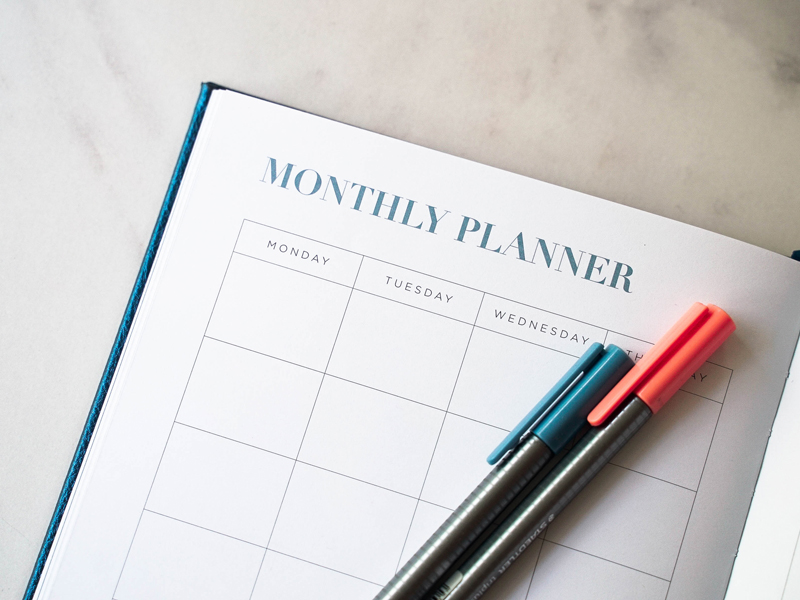We can all agree that semester one was rough… but semester two gives us all a chance to hit the reset button and completely smash the second half of the year. You aren’t going to get the results you need if you just do the same old thing as you did in semester one. Or, maybe you were awesome in semester one, in which case carry on!
Here are my tips for what you can do to make the most of semester two and get the marks you deserve. This list is especially for senior students (I’m particularly looking at you year 12!), but any student will benefit from improving in these areas.
What you can do to make the most of semester two
1. Listen to your report
We are given reports for a reason, they are constructive criticism, so utilize them. Despite what the internet tells you, read the comment left by the teacher and put their suggestions into action. Believe it or not, your teachers don’t hate you and they actually want to see you improve and pass the subject (even if it’s just so they don’t have to teach you next year…ha!). The comments they make will help you become a better student.
Also, take your marks into consideration. Most reports don’t just give you a mark, they give you a list of things that contributed to getting that mark. So, if you notice that some things are worse than others, try your hardest to improve them so they are up to the standard you know you are capable of.
2. Use a planner
Whether you get a notebook-style planner, an app or print out a sheet each week, a planner is a very important and useful thing to have during the whole school year. I actually use a small whiteboard that’s up on my bedroom wall. I take a photo of it so I’ve always got it with me, but the wall thing helps give the list maximum attention!
Now is the time to get organised. Semester two is full of activities, excursions, camps and assignments and you need to track all of those things. You also need to pencil in time for studying and much-needed breaks. (Don’t forget the breaks!)
A planner can also act as a daily to-do list, so you know everything that needs to be done and you can refer back to it if you have forgotten. It is helpful to write in your planner when you have homework due and (this is the important part) when you are going to do it. You can also use it to remind yourself what you need to pack for that day or any extra-curricular activities you’re involved in.

3. Stay on top of your work
This fits in with using a planner, but it also means listening to the teacher when they are handing out homework, assignments or any work for that lesson. Remember to ask your classmates or teachers about any work to catch up on if you are absent for a lesson.
Avoid distractions while working or studying as it is usually hard to refocus yourself. If you can’t focus, you might not finish the work in time. This might mean finding a new place to study or listening to some music through headphones as you work.
More tips here: 6 ways for kids to focus on homework and ditch distractions
4. Improve your sleep habits
End of semester usually leaves our sleep schedules a bit messed up, so make sure you use the term break to fix it. There’s no way around it: you need to get the correct amount of sleep for your age.
There are so many benefits to good sleep habits and you will notice how quickly your attention span will lengthen and your stress levels decrease. You will be able to focus during class for longer, and it will even be easier to take tests and even take notes in class.
It’s definitely hard to keep to a good sleep routine. There are some helpful tips here.
5. Study, study, study!
Make sure to make time to study hard and effectively. You may think that studying is unnecessary but it is essential to help you retain information so you can apply it in tests (and presumably at later points in life, though I’m skeptical about that!).
Make sure to review key points from each lesson at the end of the day or weekend and fit in extra time to review the week before a test. But, never cram the time you have to study (about an hour each session) and remember to take breaks to avoid burnout.
Check out these tips on effective study to help you out. Plus here’s how to write effective study notes.

6. Stay on top of your mental health
As much as studying and learning is important, it is equally important to take breaks for your mental health. So, never study for longer than an hour at a time, sleep well, eat well, get lots of sunlight, manage stress, move more, connect with others and do things that you enjoy! Phew, that’s a lot to fit into a day — no wonder we are all stressed out! See ‘planner’ above to help you fit it all in.
School and study can be a very stressful time and it is important to talk to someone if you can’t manage it. It’s important to recognise when a bit of stress becomes something deeper, so talk to a trusted adult if you’re worried about anything.
Feature image by Annie Spratt; planner by 2H Media; study by Firmbee.com

